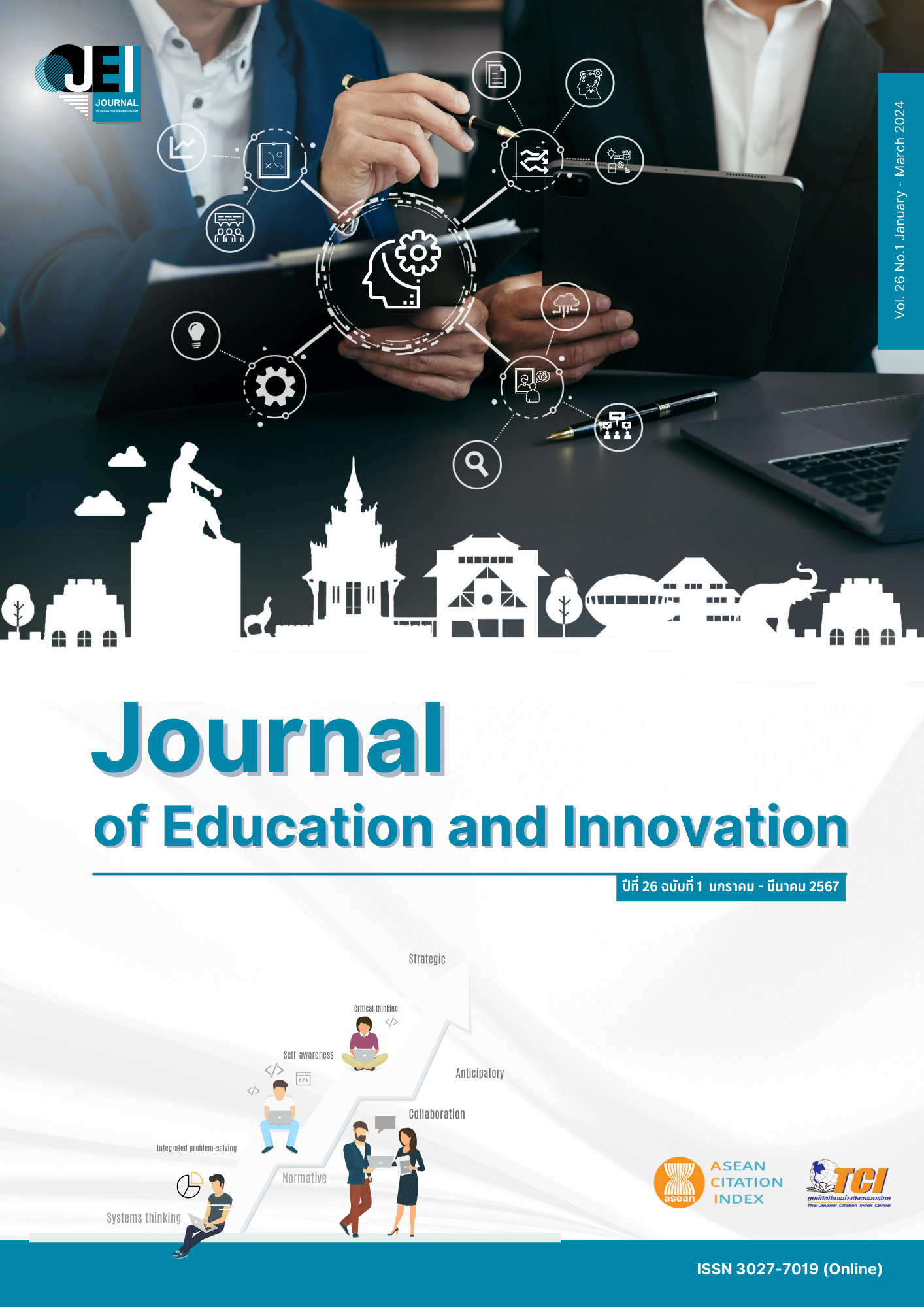TECHNOLOGICAL PEDAGOGICAL CONTENT KNOWLEDGE FOR MATHEMATICS TEACHER
Main Article Content
Abstract
To be successful in teaching and learning mathematics, not only content knowledge and pedagogical knowledge, also teachers must have knowledge about how to use technology effectively in teaching and learning. Mathematics teachers understand Technological Pedagogical Content Knowledge (TPACK). Mathematics teachers can apply knowledge in all three parts: content knowledge, pedagogical knowledge and technological knowledge. Pedagogical content knowledge (PCK) for mathematics teachers it is the knowledge of the teacher who chooses a teaching method that is appropriate for the content and suitable for the learners. Technological content knowledge (TCK) for mathematics teachers it is knowledge that teachers choose technology to suit the content, and technological pedagogical knowledge (TPK) for mathematics teachers it is knowledge that teachers choose to use technology that is suitable for teaching content. All three parts are Technological Pedagogical Content Knowledge (TPACK) for mathematics teachers. In addition, teachers with such knowledge can use technology to organize learning activities to encourage students to develop problem-solving skills, reasoning, conceptual connecting and giving students the opportunity to present their ideas. Technology enables students to acquire adequate knowledge and understanding as well as to develop mathematical process skills. Also, technology can make abstract mathematics to be more clearly and help students about knowledge inquiry and demonstration in the classroom. Technological Pedagogical Content Knowledge of mathematics teachers is the knowledge about integration technology in the content in various methods. Mathematics teachers have to choose suitable technology for the content. When mathematics teachers have TPACK, they will use technology as a tool for learning and working to manage mathematics teaching effectively.
Article Details

This work is licensed under a Creative Commons Attribution-NonCommercial-NoDerivatives 4.0 International License.
The owner of the article does not copy or violate any of its copyright. If any copyright infringement occurs or prosecution, in any case, the Editorial Board is not involved in all the rights to the owner of the article to be performed.
References
Alkhateeb, M. A., & Al-Duwairi, A. M. (2019). The effect of using mobile applications (GeoGebra and sketchpad) on the students’ achievement. Journal of Mathematics Education, 14(3), 523-533.
Azizul, S. M. J., & Din, R. (2018). Teaching and learning mathematics on geometry using GeoGebra software via MOOC. Journal of Personalized Learning, 2(1), 40–51.
Cramer, K., Behr, M., Post T., & Lesh, R., (2009). Rational Number Project: Initial Fraction Ideas. Dubuque Iowa: Kendall/Hunt Publishing.
Doering, A., Scharber, C. Miller, C., & Veletsianos, G. (2009). GeoThentic: Designing and assessing with technology, pedagogy, and content knowledge. Contemporary Issues in Technology and Teacher Education, 9(3), 316 - 336
Klainin, S. (2015). Mathematics education at school level in Thailand is facing dilemmas. Bangkok: The Institute for the Promotion of Teaching Science and Technology (IPST).
Makanong, A. (2004). Conceptual understanding: the focus of mathematics teaching Process the articles, principles and guidelines for learning management of mathematics learning strands. Bangkok: Bophit Printing.
Makanong, A. (2014). Mathematics for secondary teachers. Bangkok: Chulalongkorn University Press.
Hohenwarter, M. (2020). What is GeoGebra? Retrieved March 1, 2023, from https://www.geogebra.org/about
Mishra, P., & Koehler, M. (2006). Technological pedagogical content knowledge: A framework for teacher knowledge. The Teachers College Record, 108(6), 1017-1054.
Niess, M. (2005). Preparing teachers to teach science and mathematics with technology: Developing a technology pedagogical content knowledge. Teaching and Teacher Education, 21(5), 509-523.
Office of the Royal Society. (2015). Dictionary of contemporary education the royal academy council. Bangkok: Office of the Royal Society.
Shulman, L. S. (1986). Those who understand: A conception of teacher knowledge. American Educator, 10(1), 9-15.
The Institute for the Promotion of Teaching Science and Technology. (2017). A guide to using the curriculum to learn mathematics (revised version B.E. 2560) according to the core curriculum for basic education, 2008. Retrieved March 1, 2023, from https://www.scimath.org/ebook-mathematics/item/8380-2560-2551-8380
Thipkong, S. (2002). Mathematics Curriculum and Instruction. Bangkok: Institute of Academic Development.
Thompson, A., & Mishra, P. (2007). Breaking news: TPCK becomes TPACK!. Journal of Computing in Teacher Education, 24, 38-64.
Utitasarn, C., Jampawai, T., & Phuengkuson, N. (2020). The study of teaching mathematics by using information technology and communication of student teachers. Journal of Educational Review Faculty of Education in MCU, 7(1), 276–286.


